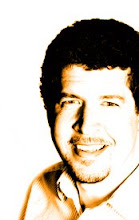Now.
But first things first. You're not applying for a job (you apply at McDonalds), you're searching for a job. And it's a process. So the proper question is "How do I start my job search?"
Research. Get to know the industry. Find out who is doing the kind of work you want to do. Learn about their areas of expertise, their competitors and where they are headed. Start this as early as possible.
Network. Find ways to meet people in the industry. Go to industry events. Talk to speakers afterwards. Keep in contact with friends who have graduated and are in the industry (the most overlooked contacts). Do this throughout your schooling.
Informational Interviews. Once you make contacts, see if you can set up informational interviews. It doesn't need to be with the owner or creative director. It can be with anyone who can give you insight into their company, the industry and the job market. Plus, if you make a good impression, you've just created an ally within that company.
And now to the part of the process that most people focus on:
Asking to be Considered for a Position. Most creative shops are always looking for people -- even when they're not hiring. The good creative directors are always looking for their next hires before they need them. That's why it's never too early to start. You want to get on their radar so that when a position opens, they think of you. OR, if you're really good, they'll consider adding the position before they need it (so they don't miss out on the right person).
Something to keep in mind: if you're applying for a job you saw online, that means they have an immediate opening and want to fill it as fast as they can. They're not likely to wait for three months for you to graduate. Interview anyway. They may have another opening by the time you're ready and you could be at the top of the list.
Keep in mind, you are beginning a process. Start as early as you can.




